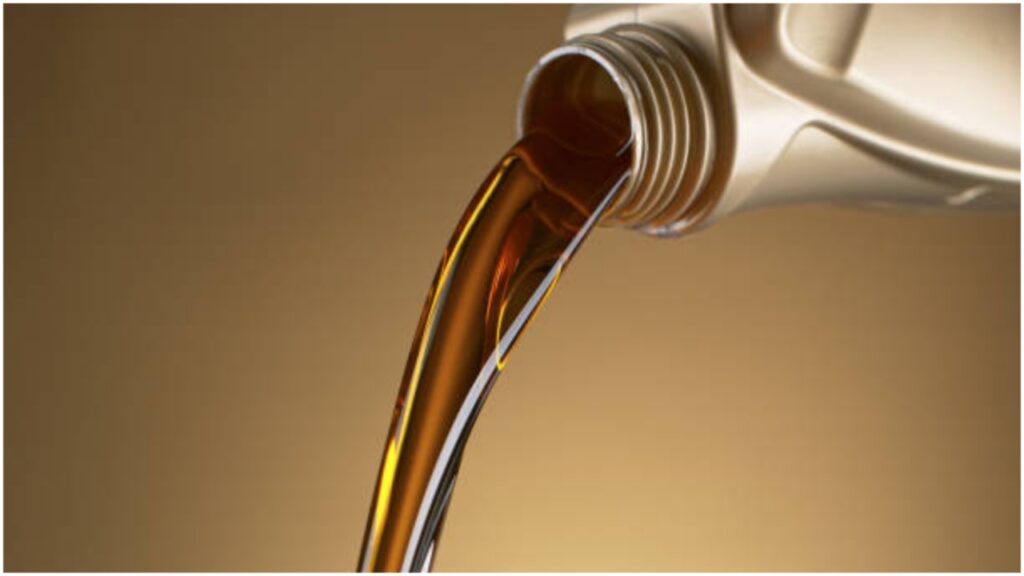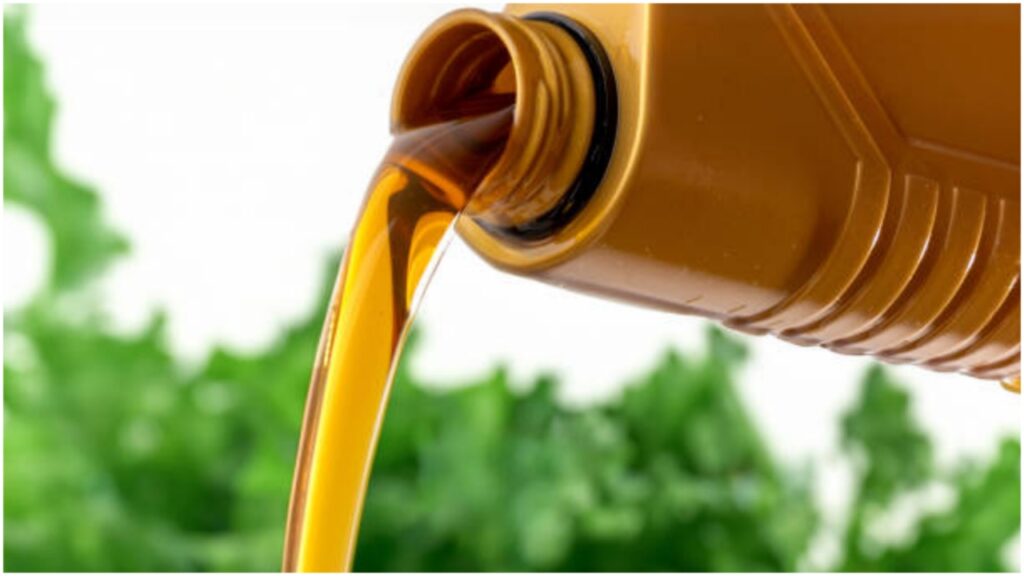You’ve come to the right place for easy answers to your engine problems. We’ll explain the intricacies of oil additives and engine knocking with clarity and insight.
Do oil additives stop engine knocking? Some oil additives, such as octane boosters or cleaning agents that target carbon deposits, can temporarily reduce mild engine knocking caused by fuel problems or deposits. They are not permanent solutions to the underlying mechanical problem.
Read the full article to learn which additives may provide some relief and, more importantly, when they won’t, and to learn more about some of the unknowns. Comment now if you have any questions or need any information, or contact me now.
Understanding Engine Knocking
That sound is not good. It’s a knock on your engine. It’s like a tiny hammer inside. This happens when the gas burns incorrectly. It explodes too soon. This makes the engine. It can make you sad.
It can cost you money. We need to know why it happens. Then we can try to make it stop. It’s important to learn about this knocking. It helps us take care of our cars.
Causes of Engine Knocking
Why does your engine make that noise? Many things can cause it. Bad gas is one reason. If your gas is not the right kind, it can burn too fast. Old stuff inside your engine can get hot. This can make the gas burn early, too.
If your engine gets too hot, it can also knock. Sometimes, old parts cause knocking. They don’t seal well anymore. This changes how things burn. So, bad gas, gunk inside, too much heat, and old parts can all make your engine knock.
Effects of Engine Knocking
That knocking is more than just a bad sound. It can hurt your car. Think of those little explosions happening too early. They push on the parts the wrong way. This can make parts wear out fast. It can also make your engine not work as well. You might get less power. You might use more gas.
If you keep driving with that knock, bad things can happen. Parts inside can break. You could even ruin the whole engine. It costs a lot to fix that. So, that knocking sound is a warning. We need to listen and find out what’s wrong before it gets worse.
The Role of Oil Additives in Solving Engine Knocking Problems
Some oils help your car’s gas burn better, so it doesn’t knock. Others act as cleaners inside your engine, washing away the stuff that can cause knocking. And some simply help engine parts run more smoothly, which can quiet down the noise.
But they’re not a solution that will fix everything. If the knocking is really loud or happens all the time, these fluids probably won’t fix the problem. They may help a little bit occasionally, but they won’t fix broken parts.
So, if you’re hearing a lot of knocking, the best thing to do is have it checked out by an auto expert. Finding the real cause of the knocking is the best way to stop it permanently, not just pour something in and hope for the best.
Enhancing Lubrication
Good oil helps your engine parts move easily. This is called lubrication. When parts rub, they make heat. Good oil stops too much heat. Some oil helpers make the oil even better at this. They can make a slicker film on the parts.
This means less rubbing. Less rubbing means less heat. It also means less wear on the parts. These helpers can be good for older cars. They can also help cars that work hard. Better lubrication can make your engine last longer.
Reducing Friction
When engine parts move, they rub together. Rubbing makes friction. Friction is like a brake on the engine. It makes the engine work harder. This can waste gas. It can also make the engine hotter. Some oil helpers can reduce friction.
They put a special coating on the parts. This coating helps the parts slide better. Less friction means the engine runs more easily. It can save you gas. It can also keep the engine cooler.
Cleaning Engine Deposits
Over time, gunk can build up inside your engine. This gunk is called deposits. These deposits can make your engine not run well. They can even cause knocking. Some oil helpers have cleaners in them. These cleaners work like soap for your engine.
They help break down and wash away those deposits. A cleaner engine can run smoother. It can also help stop knocking caused by those deposits. It’s like giving your engine a good spring cleaning so it can breathe and work its best again.
Types of Oil Additives

Many oil helpers exist. Some help your gas. This can stop engine knock. Some clean inside the engine. This can remove gunk. Gunk can cause crashing. Some make the oil slicker. This helps parts move easily. Easy moving means less wear.
Less wear is good—some help in hot or cold. You pick the right helper. The right helper can fix your car problem. Think about what your car needs. Then choose the best oil helper for it. This can make your car run better.
Detergents
Some oil helpers have detergents. Detergents are like soap for your engine. They clean inside. Over time, sticky stuff can build up. This sticky stuff is called deposits. Deposits can make your engine not run well.
Detergents help wash away these deposits. They keep things clean. A clean engine can work better. It can also help stop knocking. Knocking can happen if there are too many deposits. They help keep everything clean and running smoothly.
Dispersants
Dispersants are oil helpers. They team up with cleaners. Cleaners scrub off engine dirt. Dispersants grab that dirt. They stop it from clumping up. Small dirt flows in the oil. The filter catches it. This keeps your engine cleaner longer.
Anti-Wear Agents
Engine parts rub. Rubbing wears them down. Anti-wear stuff helps. It makes a thin coat on metal. Parts don’t touch as much. Less touch means less wear. This helps the engine last longer. It’s like a shield for the moving parts.
Viscosity Modifiers
Oil has a thickness called viscosity. It changes with heat. Viscosity helpers fix this. They make oil thin in cold weather. This helps it flow fast when you start. They make oil thick in the heat. This helps it protect the engine when it’s hot. So, these helpers make sure your oil is always the right thickness. This keeps your engine safe in all kinds of weather, hot or cold.
Corrosion Inhibitors
Metal engine parts can rust. This is corrosion. Water and air can cause rust. Corrosion inhibitors stop this. They make a coat on the metal. This coat blocks water and air. The parts don’t rust.
This helps your engine last longer. Rust can make parts weak. It can stop them from working right. Corrosion inhibitors are like a raincoat for the metal inside your engine. They keep it safe from rust and various damages.
Extreme Pressure (EP) Additives
Some engine parts have high pressure. They push hard against each other. Regular oil might get squeezed out. EP additives help here. They stick to the metal. They make a strong layer. This layer stops parts from grinding. This is important for parts with lots of force. Think of them as extra tough padding for parts under heavy stress. They prevent damage when things get squeezed.
Pour Point Depressants
Oil gets thick in the cold. This makes starting hard. Pour point helpers stop this. They keep oil thin when it’s freezing. So, the oil flows easily. This helps you start your car in winter. They are like antifreeze for your oil’s thickness.
Selecting the Right Oil Additive
Know why your engine knocks first. Is it bad gas or gunk? Some oil helpers boost gas. Some clean inside. Read the bottle to see what each does. Think about your car’s age and how you drive. Some helpers are better for older cars or hard work. The wrong helper might not work or could cause harm. Choose wisely for your car’s needs.
Understand Your Engine’s Needs
Listen to your engine. What problems does it have? Does it knock? Does it burn oil? Different problems need different helpers. Read your car’s manual. It tells you what kind of oil is best. It might also say if you need special helpers. Knowing your engine helps you pick the right oil helper. This can make your car run better and last longer.
Engine Type
What kind of engine do you have? Is it old? Is it new? Some oil helpers are better for certain engines. High-mileage engines might like helpers that stop leaks. Turbocharged engines might need helpers that handle high heat. Knowing your engine type helps you choose the right oil helper. The right one can make a big difference. It can help your specific engine run its best.
Operating Conditions
Think about how you drive. Do you drive hard? Do you live in a hot place? Hard driving and heat stress your oil. You might need special oil helpers. Some help with high heat. Some help with heavy loads. The right helper keeps your engine safe.
Vehicle Age
How old is your car? Older cars might have different needs. Seals and gaskets can wear out over time. Some oil helpers can help stop leaks. They can also help reduce oil burning in older engines. Newer cars might not need these special helpers. They might just need good-quality oil. So, think about how old your car is. This can help you decide if you need an oil helper for older engines.
Best Practices for Using Oil Additives

Only use one oil helper at a time. Read the bottle’s directions closely. Put in the right amount. Too much can be bad for your car. Remember, these are not fixes for big engine problems. See a mechanic if the knock is bad. Oil helpers give a small boost. Don’t expect them to work fast. It takes time to see if they help. Using them the right way is important.
Correct Application Techniques
Putting in oil helpers is usually easy. Wait until your engine is warm. Turn it off. Find the oil fill cap. It usually has a picture of an oil can. Take the cap off. Pour in the right amount of the oil helper. Don’t pour in too much. Put the oil cap back on tight. Start your engine. Let it run for a bit. This helps the helper mix in with the oil. Follow the directions on the bottle for the best way to use it.
Frequency of Use
Use oil helpers when you change your oil. This is not every time you get gas. Read the bottle. It tells you how often. Too much can hurt your oil. Stick to what the bottle says. Usually, it’s just once per oil change. This helps your engine when it needs it.
Monitoring Engine Performance
After using an oil helper, watch your car. Does the knocking sound better? Does it go away? Is your engine running smoother? Are you using less gas? You need to pay attention to how your car feels and sounds. If things don’t get better, or if they get worse, stop using the helper. It might not be the right one for your car. It’s important to see if it’s helping.
Long-Term Solutions and Preventative Measures
Oil helpers can sometimes help a little bit. But they are not always the best answer for engine knocking. For long-term fixes, you might need to see a mechanic. They can find the real problem. Using the right kind of gas for your car can also help stop knocking.
Regular car care, like oil changes, is important too. Keeping your engine in good shape can prevent knocking from happening in the first place. Think of oil helpers as a short-term aid, but good car care is the long-term solution.
FAQ’s
What to Do When You Hear Engine Knock?
You hear that knocking sound? Don’t just ignore it. It means something is wrong. First, try to think about when it happens. Does it only happen when you speed up? Or all the time? This can give you clues. Next, check your car’s book.
It might say something about knocking. If it keeps happening or gets worse, stop driving the car. It’s not safe. Call a mechanic. They know how to check engines. They can find out why it’s knocking. Fixing it early can save you money and big problems later.
Best additive to quiet engine noise!
If your engine makes noise, some oil helpers might quiet it. For ticking, try Liqui Moly Hydraulic Lifter Additive. It can clean noisy lifters. For general noise, Lucas Oil Heavy Duty Oil Stabilizer is thick and might help. Dura Lube Severe Instant Quiet says it works fast.
Anti-friction stuff like TriboTEX can make things smoother and quieter. Rislone Engine Treatment cleans and might reduce noise, too. Remember, these might only help a little. Big engine problems need a mechanic. Read the bottle and your car’s manual before using any.
How to reduce engine noise in cabin?
Want a quieter car? Try adding sound-deadening mats. Put them on the doors and the floor. Check the seals around windows and doors. Good seals block noise. Extra layers under the carpet can help. Under the hood, special covers can trap engine sound. Use good-quality engine oil. A healthy engine is quieter. Check your exhaust for leaks.
Noise-blocking weather seals!
Noise-blocking weather seals are special strips made of rubber or silicone. They help stop outside noise from coming into the car. Good seals also keep out wind and rain. They make the inside of your car quieter and more comfortable. You can find different types that stick on or slide into place. Making sure your seals are in good shape can cut down on that annoying road and engine noise while you drive.
Conclusion
To reduce engine noise in a car cabin, several methods can be used. Sound-deadening mats can be added to the doors and floor. It’s important to check and maintain the weather seals around doors and windows. Additional layers under the carpet can also help. Under the hood, engine covers can trap sound.
Using good quality engine oil helps the engine run smoothly and quietly. Exhaust leaks should be checked and repaired. Noise-blocking weather seals are also effective. They are made of rubber or silicone and are installed around doors and windows to block external noise and wind.

